|
Prof Deon Rossouw, Chief Executive Officer of The Ethics Institute, describes the three critical qualities that organisations ‘tainted’ by state capture must demonstrate to regain the trust of society.
Ethics is a precondition for safe, just, and prosperous societies. If ethics is not embedded in society and in organisations, the inevitable result is a breakdown not only of prosperity, justice and safety, but also of trust. We saw this happening to South Africa under Apartheid, and we are seeing it now again with state capture. In the private sector, we have already witnessed the voluntary or forced departure of persons accused of abetting state capture in companies such as KPMG, Alexander Forbes, SAP, Bell Pottinger and others. Furthermore, in the public sector, senior executives have started to vacate their positions in state-owned enterprises such as Eskom, Transnet, Prasa, and SABC, and others are likely to follow soon. There is no doubt in my mind that this implosion in both the private and public sectors will come to its logical end, and the country will step into a new era. At the dawn of this new era, organisations in both the public and private sectors that lost their reputation, as a consequence of their involvement in state capture, will have to start the long and arduous journey of regaining their legitimacy. This will require them to demonstrate three main qualities: openness, competence, and integrity. Firstly, organisations that were implicated in state capture must come clean. They will only be able to regain trust if they are open about what went wrong. Sweeping under the carpet things that have gone wrong will not do the trick. The leadership of affected organisations will have to admit to their stakeholders and society at large that there were serious ethical failures that took place on their watch. Secondly, organisations must demonstrate that they are competent in delivering their mandate to society. The trust of society in the affected organisations has been depleted because these organisations failed to deliver on their mandates – and thus broke their promise to stakeholders. Being ethical is not enough to restore trust. Ethics has to be complemented with competence. Thirdly, organisations must display integrity. That means that they must commit themselves to well-articulated ethical standards, and must be seen to adhere to these standards. People only trust other people and organisations who predictably adhere to clear ethical standards. Unethical conduct alienates people who are affected by such conduct, and it fuels suspicion and mistrust. For organisations to restore trust in their integrity, they will have to demonstrate that ‘what we say’ is the same as ‘what we do’. Trust can be lost quickly and easily. Restoring trust is a long process that requires patience in the process of slowly recovering lost ground. But above all, restoring trust requires committed and courageous ethical leadership. For the full article go to https://www.tei.org.za/index.php/resources/articles/ethics-opinions/7438-restoring-trust-beyond-state-capture ENDS
0 Comments
The second South African Citizen’s Bribery Survey, conducted by The Ethics Institute and sponsored by Massmart, asked among other things whether respondents had ever said no to paying a bribe. The results show that half of respondents have never been asked for a bribe, while 60% of those who have been asked have declined to pay at some point – mostly for moral or religious reasons.
Other key findings include: • 1 in 5 people know someone who paid a bribe in the last year; • Over half of bribes are for road related matters (i.e. traffic fines + drivers’ licences). Reducing these could have an impact on road deaths; • The poor find it more difficult to get through everyday life without paying bribes than the wealthy, and are significantly more targeted to pay bribes for employment; and • Bribery for employment and contracts occur almost equally in the private and public sectors. These figures paint a picture of citizens that are familiar with the phenomenon of bribery, but the fact that so many people decline to pay bribes also show that there is hope. “As organisations across the country observe International Anti-corruption Day on 9 December, it is worth celebrating the ordinary heroes who choose to take a personal stand against corruption,” says Professor Deon Rossouw, CEO of The Ethics Institute. “The research findings show that South Africans do have a moral compass, and those who pay bribes are still in the minority.” According to survey respondents the top five reasons for resorting to bribery are to avoid traffic offences (36%); to secure a job (18%); to obtain a driver’s licence (15%); to receive unauthorised discounts from businesses (7%); and to get a tender 4%. Professor Rossouw says “It is clear that there are those who pay bribes to exploit the system for their own benefit, but there are also vulnerable people who are exploited by unscrupulous individuals. We found that South Africans with lower income find it significantly more difficult to get through everyday life without paying a bribe, particularly with respect to bribes to secure jobs. There is a certain injustice in the fact that those who have the least resources are most vulnerable to being targeted.” Massmart Anti-Corruption Compliance Executive, Johann Stander says “At Massmart we are committed to doing business the right way and have invested significantly in promoting a culture of integrity within our organisation. We also believe that we should play a broader anti-corruption role in our society because bribery increases the cost of living for all of us and undermines the rule of law and the values of our democracy. It is not good for social cohesion nor is it good for business, hence our sponsorship of the South African Citizens’ Bribery Survey.” The survey findings were based on interviews with more than 4553 South Africans from urban centres in Gauteng, Limpopo Kwazulu-Natal, Free State and the Western Cape. The objective of the survey is to gain insight into the everyday experience of ordinary South Africans in relation to their perceptions of bribery, the extent of bribery in the country as well as the socio-economic factors that influence it. Some of the questions asked included; “how frequently are people asked for bribes? What are these bribes for? How much do people pay for bribes? How willing are they to do something about bribery? What were the reasons for paying or refusing to pay a bribe?’’ About the South African Citizens’ Bribery Survey 2016 Conducted by The Ethics Institute and sponsored by Massmart, this is the first survey to examine bribery as perceived and experienced by ordinary South African citizens. It is the second year the survey is being conducted. The survey was conducted in a wide range of Massmart stores in Kwazulu-Natal, Gauteng, Free State, Western Cape and Limpopo. The 4553 South Africans who participated in the survey come from various income levels. ENDS MEDIA CONTACT: Cathlen Fourie, 082 222 9198, [email protected], www.atthatpoint.co.za For more information on The Ethics Institute please visit: Website: www.tei.org Twitter: @EthicsInst LinkedIn: The Ethics Institute Facebook: Ethics Institute of South Africa By Professor Deon Rossouw, CEO, The Ethics Institute  Professor Deon Rossouw, CEO, The Ethics Institute Professor Deon Rossouw, CEO, The Ethics Institute Social and Ethics Committees (SECs) are provided for in Section 72 (4-10) of the Companies Act, 2008 (Act No. 71 of 2008). But the uptake of these committees in companies is proving to be a challenge when, in fact, it should be seen as an opportunity for companies to build relationships with the communities and consumers they deal with daily. As some companies have discovered, having an SEC becomes more than a “check-box” exercise, and meaningful application has resulted in benefits in terms of strategy, risk management and turnover. SECs should be used to develop a more responsible culture of doing business in a sustainable manner. Perhaps the biggest achievement of having an SEC is that the issue of sustainability has become a regular agenda item at board meetings. Most SECs have settled into a rhythm of meeting prior to scheduled board meetings and their reports are tabled at subsequent board meetings. As a result, sustainability has become a regular subject for top-level discussion and scrutiny. As sustainability becomes part of the business-as-usual agenda, it becomes incorporated into companies’ operational DNA. Hence, the long-term impact of normalising social and ethical issues in businesses cannot be underestimated. Another related achievement is that because these issues are being thought about and reported on regularly, sustainability and integrated reports are becoming more credible and useful. Whereas previously, many of these reports were compiled in a hurry and did not necessarily reflect the truth, management now has to report regularly on these issues. So the content for these reports is generated by means of institutional processes and thus better reflects the truth. However, it should be noted that there remain a number of challenges. First, inexact and incomplete legislation and regulations continue to create confusion. Legally, the position is that SECs only have a social mandate. Leading companies have used King III as their guide and have incorporated ethics, but this is purely on a voluntary basis. This omission is something that legislators need to rectify soon. A structural challenge is the fact that the mandate of SECs can overlap with those of other board committees such as audit, HR and remuneration. This needs to be addressed to prevent “turf wars” from developing. A more difficult challenge is that most companies are still grappling with how to produce the right content and quality for SEC reports. Committee members tend to be nonexecutive, so do not have the inside knowledge to be able to assess the reporting, whereas managers are often uncertain about what needs to be reported on. A contributing factor is surely the lack of performance indicators for social and ethics issues, which makes it difficult for all parties to move beyond compliance and towards assessing the real impact of social and ethics performance. This expectation gap causes frustration. Based on The Ethics Institute’s interaction with hundreds of companies at various training sessions, our overwhelming conclusion is that the key factor of success is an SEC whose agenda is closely aligned with company strategy. This breathes energy into the committee’s operations because members can see the strategic importance of what they are doing, and the board and executive management can see that the company is deriving real value from the work done by the SEC. For example, as we have seen, a mine’s long-term sustainability is dependent on its relationship with the surrounding community and its employees, exactly the area for which the SEC takes responsibility. To paraphrase, don’t ask what you can do for your SEC, but what it can do for you. If the committee is seen to be delivering value, it will continue to improve and create a genuine virtuous cycle. This article first appeared in The Regulatory Debates Edition 3 ENDS MEDIA CONTACT: Cathlen Fourie, 082 222 9198, [email protected], www.atthatpoint.co.za For more information on The Ethics Institute please visit: Website: www.tei.org Twitter: @EthicsInst LinkedIn: The Ethics Institute Facebook: Ethics Institute of South Africa Offering rewards for whistle-blowing can yield results, but should not replace the creation of an ethical culture. By Liezl Groenewald, Manager: Organisational Ethics Development The Ethics Institute  Liezl Groenewald from The Ethics Institute says incentivising whistle-blowers should not replace efforts of creating an ethical culture within organisations. Liezl Groenewald from The Ethics Institute says incentivising whistle-blowers should not replace efforts of creating an ethical culture within organisations. Canada’s Ontario Securities Commission recently announced that it would begin paying incentives to whistle-blowers. The scheme allows for payments of up to $1.5 million, or more if high amounts are collected. The US Securities and Exchange Commission (SEC) is the flag-bearer for this approach, paying famously high rewards to those uncovering corporate wrongdoing. Should South Africa, with its high levels of corruption, be considering a similar approach? This approach has generated results for the United States. Complex frauds have been uncovered, and the pay-outs help to compensate whistle-blowers for the fact that many lose their jobs or find their careers in free-fall after coming forward. For example, former Enron Vice-President Sherron Watkins, who helped uncover accounting irregularities at the company 14 years ago, has been unable to obtain a corporate job since. However, British regulators decided not to go this route. They argue that only a small number of whistle-blowers—perhaps as low as 1 percent—actually qualify for a pay-out; no such protection is afforded to those whose information does not result in a concrete outcome, but who may still suffer negative consequences. The introduction of financial incentives has not only created the need for complex and expensive governance frameworks, but it could also undermine existing corporate whistle-blowing mechanisms. Exemplary protection South Africa is generally credited with an exemplary protection framework for whistle-blowers, anchored by the Protected Disclosures Act. However, The Ethics Institute’s South African Business Ethics Survey 2016 shows a decline in the number of South African employees who report observed misconduct. In 2016, only 48 percent of those who observed misconduct reported it, down from 64 percent in 2013 and 66 percent in 2009. The most prominent reasons for not reporting misconduct are a fear of victimisation at work (36 percent) and a belief that the company would take no action (32 percent). Locally, there have been a number of high-profile instances where whistle-blowers have suffered severe consequences or even death. One such was Moss Phakoe, a councillor in Rustenburg who was gunned down after giving evidence of municipal corruption. Another is Mpumalanga politician Jimmy Mohlala, who was shot dead after blowing the whistle on corruption linked to the building of a 2010 Fifa World Cup Soccer venue, the Mbombela stadium in Nelspruit. Another factor for the decline in reporting misconduct could be that the profile of perpetrators has shifted, with 41 percent categorised as senior managers, up from 17 percent in 2009, according to PwC. It seems that employees are less willing to blow the whistle on their seniors, despite the protection afforded by internal whistle-blowing policies and the Protected Disclosures Act, and the fact that most corporates have a hotline run by a third party where reports can be made anonymously. This could be justification for considering some sort of incentive to encourage whistle-blowing. At the same time, though, care must be taken to craft the approach lest it undercut efforts to build an ethical culture in our businesses and more generally. Changing the ethical culture That said, an incentive scheme could play a valuable role in foregrounding ethical behaviour, and promoting the concept that ethical actions yield positive results. It may also help to reverse implicit cultures that prioritise loyalty to fellow workers above loyalty to the organisation. Based on international experience as well as the requirements of the Protected Disclosures Act, it’s important to emphasise that whistle-blowers should only be allowed to contact regulators, other authorities or the media after having exhausted internal reporting avenues. Not only could it strengthen the ethical culture within corporates, but employees will be protected by the Act. As important, companies should make concerted efforts to praise those who act ethically by blowing the whistle, and should be meticulous about reporting on what actions they have taken on each reported misconduct. The key to halting corruption is to create a situation in which acting ethically is the default behaviour pattern. Clearly, as a business community and a nation, we are far from reaching that goal—some form of incentive for whistle-blowers might therefore have a role to play. ENDS MEDIA CONTACT: Cathlen Fourie, 082 222 9198, [email protected], www.atthatpoint.co.za For more information on The Ethics Institute please visit: Website: www.tei.org Twitter: @EthicsInst LinkedIn: The Ethics Institute Facebook: Ethics Institute of South Africa The Ethics Risk Handbook closes gap between risk and ethics |
Welcome to the newsroom of The Ethics Institute. For media releases prior to August 2014 please click here.
Archives
August 2017
Categories
All
|

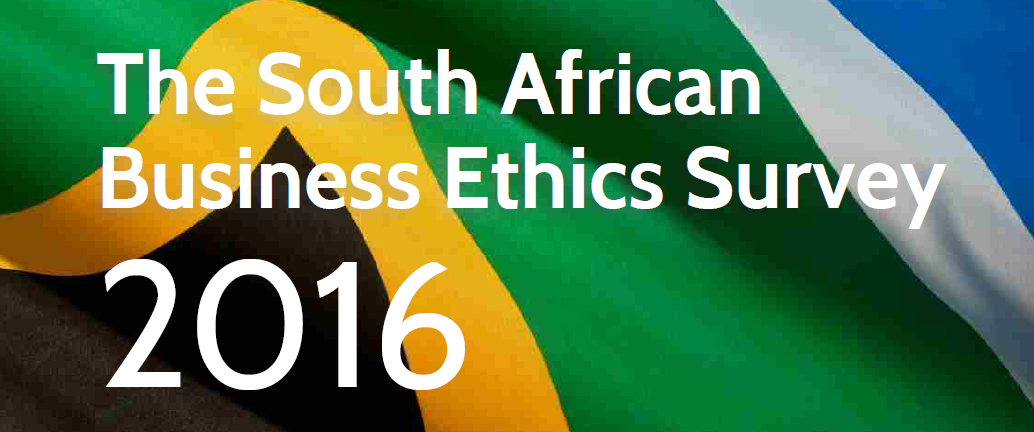
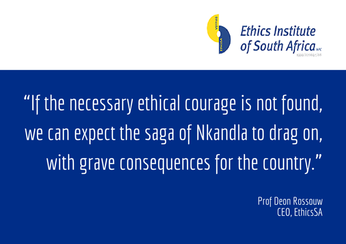
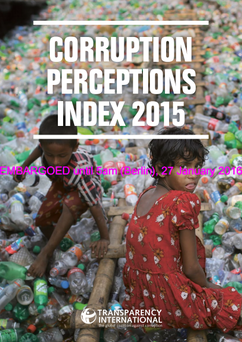
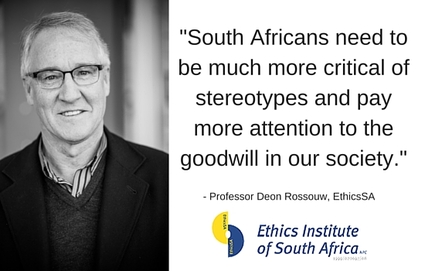
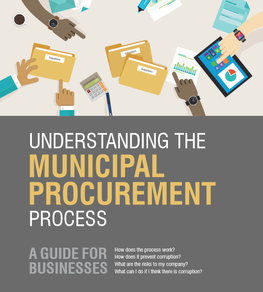
 RSS Feed
RSS Feed